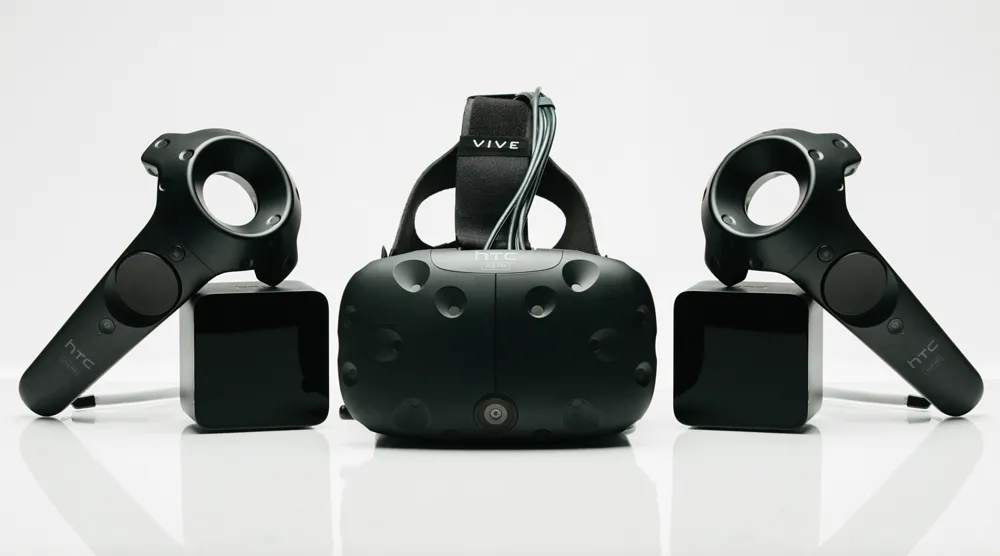As with all technology, the HTC Vive started becoming obsolete the moment it was officially released in April. It’s no secret HTC is interested in one day creating a follow up to the Vive that will keep the brand on the cutting edge of the industry but, according to one higher up at the company, that day may be further in the future than most people realize.
Raymond Pao is the vice president for future technologies at HTC and its newest subsidiary: Vive Corporation. As such, his job is to scour the world for the most bleeding edge tech he can find and then figure out how to either buy, borrow or otherwise collaborate those innovations into the next generation of the Vive. Pao is a man in the know when it comes to the still unnamed “Vive 2” project, and in an interview at Upload’s offices in San Francisco, he indicated the company hadn’t settled on a plan for the next headset.
“We are still having internal discussions as to what the next generation will be. And we don’t feel that we are limited by time or any one particular new feature,” Pao said in response to a question as to whether or not he feels the Vive 2 must be wireless. “Internally we have a couple ideas but its not solid yet and its not at the stage where we are confident that we have a plan.”
Because this technology is so new, no one has really been sure what to expect in terms of a headset’s life cycle. Some argue that we could see marginally updated headsets every year or so, similar to the iPhone, but there are those in the industry who reject that notion. Game consoles generations, however, can last seven years. Pao’s comments seem to suggest indicate that VR headsets, at least for HTC, might be leaning toward the longer side.
This may be a disappointment to some Vive owners who were hoping to pick up a higher resolution model with a more agreeable form factor by next Christmas. According to Pao, “at HTC our vision is to see VR become the next major computing platform. We want our next headset to be something not just for gamers. We focused on gamers at launch but in the future we want to build something that could revolutionize healthcare, commerce, socialization, and travel.”


























